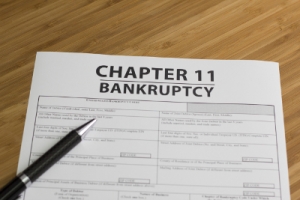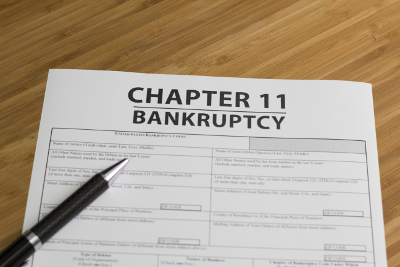What is Chapter 11 Bankruptcy?
Most people in Arizona are aware of two bankruptcy options – Chapter 7 and Chapter 13 bankruptcy. Companies that need to file bankruptcy and some individuals, however, are entitled to another possibility – Chapter 11 bankruptcy.
Chapter 11 Bankruptcy in Arizona: An Overview
Chapter 11 bankruptcy in Arizona allows enterprises and individuals who have accumulated a large amount of debt to get a reorganization and restructuring for the purpose of easier repayments.
One very important specific of Chapter 11 bankruptcies is that businesses have the right to remain open and operational during the proceedings.
Because of the specifics, a Chapter 11 bankruptcy is often called reorganization bankruptcy. Debt will not be dismissed in its entirety. Rather, a debtor will be provided with a repayment schedule that makes it easier to provide regular amounts to creditors.
As far as individuals are concerned, Chapter 11 bankruptcy is more or less similar to Chapter 13 filing. The one big difference is that in most cases, a bankruptcy trustee will not be appointed in a Chapter 11 filing. Whenever a person files Chapter 11 bankruptcy, a trustee will be appointed by the court only if there’s enough evidence of gross mismanagement of funds or fraud.
Other Essentials to Know about Chapter 11 Bankruptcy
Just like Chapter 7 and 13 bankruptcies, a Chapter 11 bankruptcy grants the debtor automatic stay. This means that after filing, all debt collection efforts will have to be discontinued. Creditors cannot pursue means like foreclosures or phone harassment for the purpose of collecting late payments.
Chapter 11 debtors can file a payment reorganization plan with court for a period of 120 days or solicit a reorganization plan for 180 days. Depending on the circumstances, the debtor could later on seek extension for these plans.
Debtors have to be aware of one very important fact – creditors have rights under Chapter 11 bankruptcies and they can demand the early termination of the reorganization plan. Creditors can file such petitions whenever they believe that the debtor is using the respective period for the purpose of estate mismanagement or for the purpose of gaining negotiation leverage in terms of debt settlement. In such instances, creditors can file a competing plan. While this happens infrequently, it’s a viable possibility that debtors should be aware of.
The Chapter 11 reorganization plan provides debtors with various tools that can be used for the purpose of regaining financial stability. One simple example is the rejection of contracts with a cap on damages. Debtors also have tools for refinancing their existing loans. Through the reorganization plan, a debtor can increase the repayment term or decrease interest rates in case these have declined since the original loan agreement was signed.
The Benefits of Chapter 11 Bankruptcy
Bankruptcy attorneys will often be asked a crucial question – which type of bankruptcy filing is best? The answer usually depends on individual circumstances.
 Chapter 11 bankruptcy makes sense in various cases. The biggest Chapter 11 advantage is that no set limit on duration applies for individuals and companies that meet all of the requirements. While the typical terms is three to five years, just like in the case of Chapter 13 bankruptcy, a court may decide to extend the period for individuals and companies that require more time for the purpose of paying off debt.
Chapter 11 bankruptcy makes sense in various cases. The biggest Chapter 11 advantage is that no set limit on duration applies for individuals and companies that meet all of the requirements. While the typical terms is three to five years, just like in the case of Chapter 13 bankruptcy, a court may decide to extend the period for individuals and companies that require more time for the purpose of paying off debt.
A few other benefits of Chapter 11 bankruptcy include:
- An automatic stay will be issued
- The plan can feature both reduced repayment amounts and reduced interest rates
- A business can stay profitable during the bankruptcy proceedings
- Contracts can be renegotiated for the purpose of ensuring financial stability
On the downside, filing Chapter 11 bankruptcy can be both long and costly. Businesses that are already struggling to remain operational may find it challenging to go through all of the proceedings. Another potential con to keep in mind is that some reorganization plans will not be considered feasible. Before the plan is enforced, it will have to get court approval.





